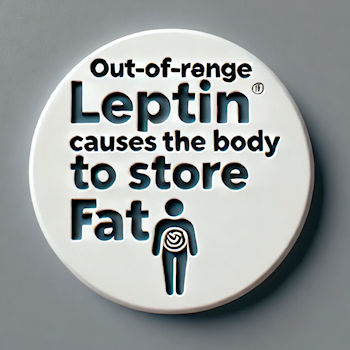- Improving lives since 2002
- Fast, Friendly Service
- Free Nutritional Counseling
The key to health is eliminating toxicities and deficiencies! - Dr. William R. Kellas

Being significantly overweight is a serious health risk, as it greatly increases the chances of developing various diseases and shortens life expectancy, as evidenced by countless statistical studies.
Losing weight is a gateway to a healthier, more fulfilling life. It enhances your ability to enjoy life’s moments while significantly reducing the risk of serious, life-threatening conditions like stroke, cancer, heart attack, kidney failure, or dementia. Achieving a healthy weight not only boosts physical well-being but also paves the way for greater happiness and longevity!



<< Pop Up 1 - Enter Your Content Here >>
<< Pop Up 2 - Enter Your Content Here >>
Yes, there is a strong association between high sugar consumption during childhood and poor health outcomes in adulthood. Excessive sugar intake in childhood can have long-lasting negative effects on overall health, leading to various chronic conditions later in life. Here are some key points highlighting this association:
High sugar consumption during childhood, especially from sugary beverages and processed foods, significantly increases the risk of childhood obesity. Obesity often persists into adulthood, increasing the likelihood of developing conditions such as heart disease, diabetes, and joint problems.
Consistently consuming high amounts of sugar can lead to insulin resistance over time, increasing the risk of developing type 2 diabetes. This condition, once rare in children, is becoming increasingly common due to diets high in sugar.
Diets high in sugar are linked to increased levels of unhealthy cholesterol and triglycerides, which can lead to cardiovascular problems such as hypertension and heart disease in adulthood.
High sugar intake contributes to tooth decay and cavities in childhood. Poor oral health in early years often leads to long-term dental issues, which can have a broader impact on overall health.
Excess sugar consumption can disrupt metabolic function, leading to chronic conditions like metabolic syndrome, a cluster of risk factors for heart disease and stroke, as well as fatty liver disease.
Early exposure to high-sugar foods shapes taste preferences and eating behaviors. Children who consume a lot of sugar often carry these habits into adulthood, making it more difficult to maintain a balanced and nutritious diet.
In summary, excessive sugar consumption during childhood is strongly linked to poor health outcomes in adulthood, including obesity, diabetes, heart disease, and metabolic disorders. Reducing sugar intake in early years is crucial for promoting long-term health.
Yes, there is a strong association between high sugar consumption during childhood and poor health outcomes in adulthood. Excessive sugar intake in childhood can have long-lasting negative effects on overall health, leading to various chronic conditions later in life. Here are some key points highlighting this association:
High sugar consumption during childhood, especially from sugary beverages and processed foods, significantly increases the risk of childhood obesity. Obesity often persists into adulthood, increasing the likelihood of developing conditions such as heart disease, diabetes, and joint problems.
Consistently consuming high amounts of sugar can lead to insulin resistance over time, increasing the risk of developing type 2 diabetes. This condition, once rare in children, is becoming increasingly common due to diets high in sugar.
Diets high in sugar are linked to increased levels of unhealthy cholesterol and triglycerides, which can lead to cardiovascular problems such as hypertension and heart disease in adulthood.
High sugar intake contributes to tooth decay and cavities in childhood. Poor oral health in early years often leads to long-term dental issues, which can have a broader impact on overall health.
Excess sugar consumption can disrupt metabolic function, leading to chronic conditions like metabolic syndrome, a cluster of risk factors for heart disease and stroke, as well as fatty liver disease.
Early exposure to high-sugar foods shapes taste preferences and eating behaviors. Children who consume a lot of sugar often carry these habits into adulthood, making it more difficult to maintain a balanced and nutritious diet.
In summary, excessive sugar consumption during childhood is strongly linked to poor health outcomes in adulthood, including obesity, diabetes, heart disease, and metabolic disorders. Reducing sugar intake in early years is crucial for promoting long-term health.
Copyright 2002 - 2024. All rights reserved.
These statements have not been evaluated by the Food and Drug Administration. No product mentioned herein is intended to diagnose, treat, cure or prevent any disease. If you are pregnant, nursing, taking medication, or have a medical condition, consult your physician before making any lifestyle change, including trying a new product or food.
The information on this website is intended as a sharing of knowledge and information from the research and experience of the Healthy-Living.Org staff and contributors. It is not intended to replace a one-on-one relationship with a qualified health care professional and it is not intended as medical advice. You should not use the information on this site for diagnosis or treatment of any health problem or for modification of any medication regimen. You should consult with a healthcare professional before starting any diet, exercise or supplementation program, before starting or discontinuing any medication, or if you suspect you have a health problem. You should keep in mind that cited references to ongoing nutritional scientific study are most likely not accepted by the FDA as conclusive. These references and mentions of benefits experienced by others are disavowed as product claims and are only included for educational value and as starting points for your own research. No food or supplement can be considered safe for all individuals. What may benefit 999,999 of a million people may harm you. Therefore, no one can take responsibility for your health except you in concert with your trusted health professional.